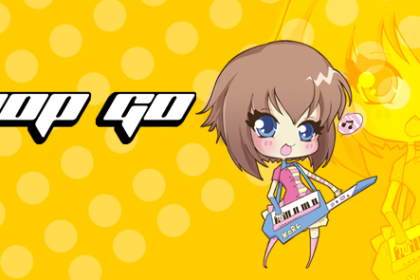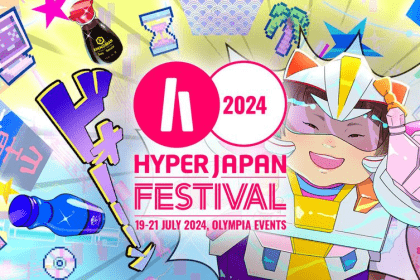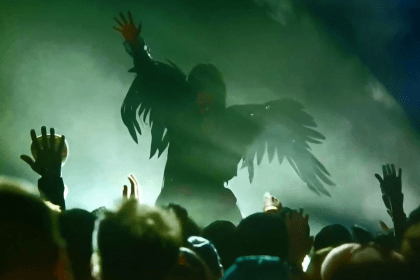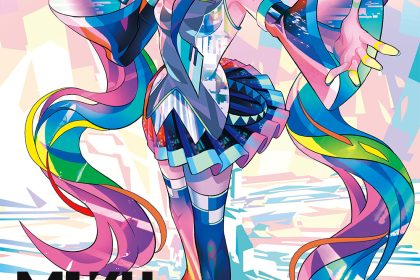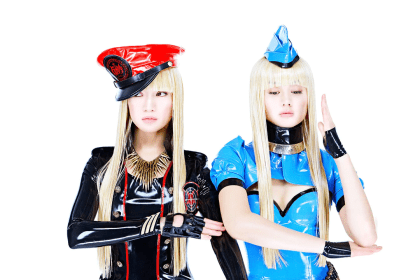
The 8-Bit brilliance of one of Japan’s rising chiptune stars…
The world of chiptune and 8-bit electronic music has been a compelling niche area for grassroots musicians for a number of years. One of the rising stars of this scene is Japanese chiptune artist Toriena.
Toriena favours the use of a Game Boy as part of her instrumentation in composing and arranging her music. As a result, tunes such as ‘Pulse Fighter’, ‘ChipBrain Girl’ and ‘FR△CTAL’ have all helped to put her on the map. She’s also built a reputation on her dynamic live performances, which deliver an energetic visual punch that belies the simplicity of chiptune’s ingredients.
Keen to take her tunes global, Toriena is also no stranger to traveling abroad to perform. In 2017, she arrived in the UK to make an appearance at Hyper Japan to both perform and conduct chiptune workshops (in collaboration with UK artist Shirobon).
Toriena’s musical influences were, naturally, formed from domestic artists, including outfits such as Polysics among others. “When I was in junior high school I was listening to Plastics and they were like a new way of techno music, so I suppose I got some influence from them.” But her interests also looked further afield. “I was always interested in foreign artists – particularly electronic music – so I started with Bjork, Daft Punk and artists from Warp Records. Since I started composing music by Game Boy, I was always into electronica but lots of people who are into similar music are into dance music, so I was gaining more influence from that too. So someone like Gammer from the UK and more like hardcore music or Shirobon.”
Although she’s made a name for herself in the world of chiptune, originally Toriena had embarked on a much more conventional route into music. “I started playing bass guitar when I was 13” she recalls, “I wanted to be in a band but my parents were a bit strict so they didn’t really allow me to be in a band! So I carried on on my own and when I went to uni I joined a band circle – like a band club thing – so I did perform a few times with other people. But then I’m not so good in writing music with others.”
“I wanted to make some techno music, so I bought this software called Cubase. Someone from uni was playing around with chiptune and so, talking among friends, we thought it was fun to start making music. But I wasn’t really that interested at the beginning. Anyway, I went to this place called Cafe De La Siesta in Kyoto, which is supposed to be like a sacred place to go for any chiptune music. The cafe owner there he gave me this software called LSDj, that’s how I kind of started. But around that time my friends organised a gig before I even made music, so I was “OK, well now I have to make music!” So at the gig I eventually went and performed – it was in a really small place – with some really great artists such as USK and Modaka-san. I was really inspired by that evening so that’s how I came along and was really into it”.
The popularity of chiptune globally is something that hasn’t escaped Toriena’s attention, although she feels there’s still work to be done at home. “Chiptune is not that popular in Japan yet, so I would like to introduce chiptune music and spread it more to Japan”.

“The word ‘chiptune’ is quite a relatively new word that was only really established since 2000, so the number of people who are making music are actually quite small. I suppose we can just fit into a park, which isn’t even 1,000 people. Because its small, the community is quite tight and a little bit restricted and restrained. Like people have got to say how this chiptune should be and criticise if anyone is doing something not chiptune-like. There’s such a word as ‘chiptune police’! So there are people who basically just criticise any kind of music or the people who say “this is not chiptune”. I personally think that it should just be a little more free, otherwise it won’t spread. Even I, myself, when I started, I had a bit of prejudice or I thought that it wouldn’t be chiptune unless it’s been made with actual equipment and gadgets”.
Given the size of the chiptune community in Japan, it’s not escaped Toriena’s attention that she enjoys a role that sees her as something of a ‘chiptune ambassador’ when going abroad. “I kind of like to think that regardless of any countries or borders, I’d like more people to know about it because more people would know the music and more fun it would be”.
As chiptune is born from gaming culture, it’s also a genre that Toriena appreciates can employ many different aspects. “I think the good thing about chiptune is it can enjoy a technical side, but also musically and also a visual side with things like pixel art. So these 3 things are what’s unique about chiptune and no other genre has got that side. And also even though it’s an electronic sound, it’s quite physical so I feel like Game Boy is an instrument, not machine. So the more people understand the depth of this music I think, the more fun it will be”.

Meanwhile, the popularity of the Game Boy as the go-to tool for chiptune artists is also something that has its own pitfalls, as the Japanese musician recalls: “I appeared on NHK the other day. I had been asked to remix some existing popular music and make it into a quiz so the guests had to guess what the original tune was. So I wanted to show the Game Boy that I was using on TV, but then I’ve been told it’s not possible. Basically, Nintendo is not really happy with anybody tweaking with their existing system, so I couldn’t bring the Game Boy on TV, and I felt really sad about it”.

As a result, Toriena is keen to explore other options for creating music in the future. “From that experience I feel that maybe I’d like to make a device or instrument that can create chiptune so that I can just be really confident about showcasing my music without worrying about it”.
These days, Toriena’s musical interests continue to cover a broad spectrum of artists. She’s a fan of “old school techno”, citing the likes of Junkie XL as a favourite. Meanwhile, contemporary chiptune artists such as Chipzel and Sabrepulse are also on her radar.
Given the fact that chiptune has arisen from video game culture, it seems sensible to suggest that maybe Toriena focus time on composing music for games directly. “I suppose it would be a little bit difficult to compose music for existing games as they’re already established as they are” she muses, “But then I like Nintendo, so if I could compose music for their news games, that would be great”.
J-Pop Go extends its warmest thanks to Toriena. Thanks also to the team at Hyper Japan and to Yuriri Naka.
http://toriena.net/
https://soundcloud.com/toriena
http://www.twitter.com/toriena
http://www.facebook.com/toriena321
https://www.youtube.com/channel/UCRW4PD99G9JoiqwO74IAQ0A

